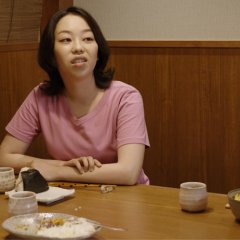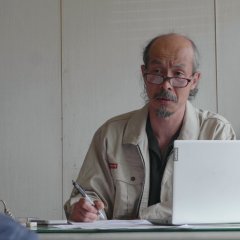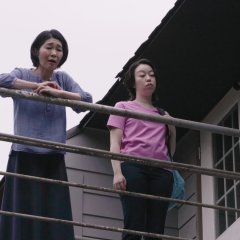American expat Lucas works at a small, struggling English language school in the countryside of Chiba, Japan and is doing what it takes to make ends meet with his meager salary. In the same town, half-Japanese Ken has been working at his uncle's construction business since he was fifteen years old and is struggling to figure out what he wants with his life. Over the course of three days, Lucas and Ken meet and help each other realize how important it is to have people and places to attach yourself to. (Source: tokyo-cowboys.com/aichaku) Edit Translation
- English
- magyar / magyar nyelv
- עברית / עִבְרִית
- dansk
- Native Title: 愛着
- Also Known As: あいちゃく
- Director: Nishizaka Raito, Michael Williams
- Screenwriter: Christopher McCombs
- Genres: Romance, Drama
Where to Watch Aichaku
Ppv (sub)
Cast & Credits
- Christopher McCombsLucasMain Role
- Christopher NishizawaKenMain Role
- Kamieda EmikaErikaSupport Role
- Gomoto NaoyaRyosukeSupport Role
- Cynthia ChestonCathySupport Role
- Takeshita KaoriYoshikoSupport Role
Reviews
Groundbreaking
Saw this film at a test screening. As a foreigner living in Japan, it hit me in the feels. Great performances by Chris and Chris. Showing the crosscultural experience as it really is, and LGBT without the "boys love" tropes. Japan needs more films like this!This review wants 300 characters. Is this enough?
Was this review helpful to you?
At the test screening in Nakano, Tokyo, one of the directors Micheal remarked that he felt “happy that viewers can view the unique lived experience of foreigners and LGBT people in Japan.” According to the directors, the film was 95% finished with music licensing being the final touches for the film.
The diversity of the story and themes is somewhat unseen in modern cinema with indie films like Aichaku having to pick up the gauntlet, doing so emotionally and with some great acting by the two leads. McCombs especially channeled the exhaustion that foreigners get when the system collapses on top of them into a powerful scene that, as someone who has been in that position millions of times, felt cathartic to see represented. The relationship between the two leads felt very raw and emotional, even if some of the setups played into Japanese tropes. Though to be fair, the film was set in rural Japan where those less-than-modern tropes still flourish.
Aichaku is a heartfelt indie film that has something for everyone, even those outside the LGBT community.
Was this review helpful to you?
Recommendations
There have been no recommendations submitted. Be the first and add one.










































